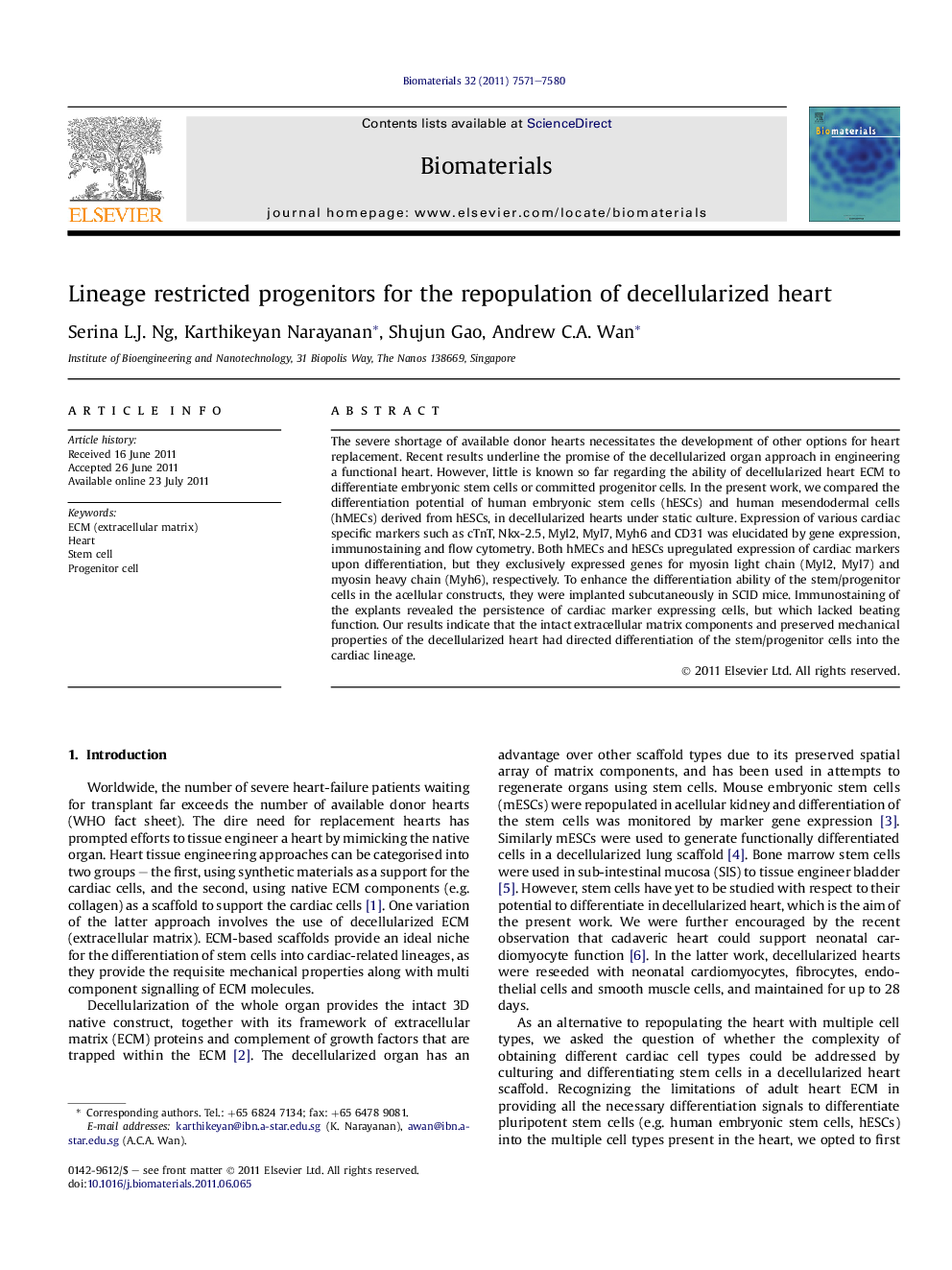| Article ID | Journal | Published Year | Pages | File Type |
|---|---|---|---|---|
| 10229739 | Biomaterials | 2011 | 10 Pages |
Abstract
The severe shortage of available donor hearts necessitates the development of other options for heart replacement. Recent results underline the promise of the decellularized organ approach in engineering a functional heart. However, little is known so far regarding the ability of decellularized heart ECM to differentiate embryonic stem cells or committed progenitor cells. In the present work, we compared the differentiation potential of human embryonic stem cells (hESCs) and human mesendodermal cells (hMECs) derived from hESCs, in decellularized hearts under static culture. Expression of various cardiac specific markers such as cTnT, Nkx-2.5, Myl2, Myl7, Myh6 and CD31 was elucidated by gene expression, immunostaining and flow cytometry. Both hMECs and hESCs upregulated expression of cardiac markers upon differentiation, but they exclusively expressed genes for myosin light chain (Myl2, Myl7) and myosin heavy chain (Myh6), respectively. To enhance the differentiation ability of the stem/progenitor cells in the acellular constructs, they were implanted subcutaneously in SCID mice. Immunostaining of the explants revealed the persistence of cardiac marker expressing cells, but which lacked beating function. Our results indicate that the intact extracellular matrix components and preserved mechanical properties of the decellularized heart had directed differentiation of the stem/progenitor cells into the cardiac lineage.
Related Topics
Physical Sciences and Engineering
Chemical Engineering
Bioengineering
Authors
Serina L.J. Ng, Karthikeyan Narayanan, Shujun Gao, Andrew C.A. Wan,
